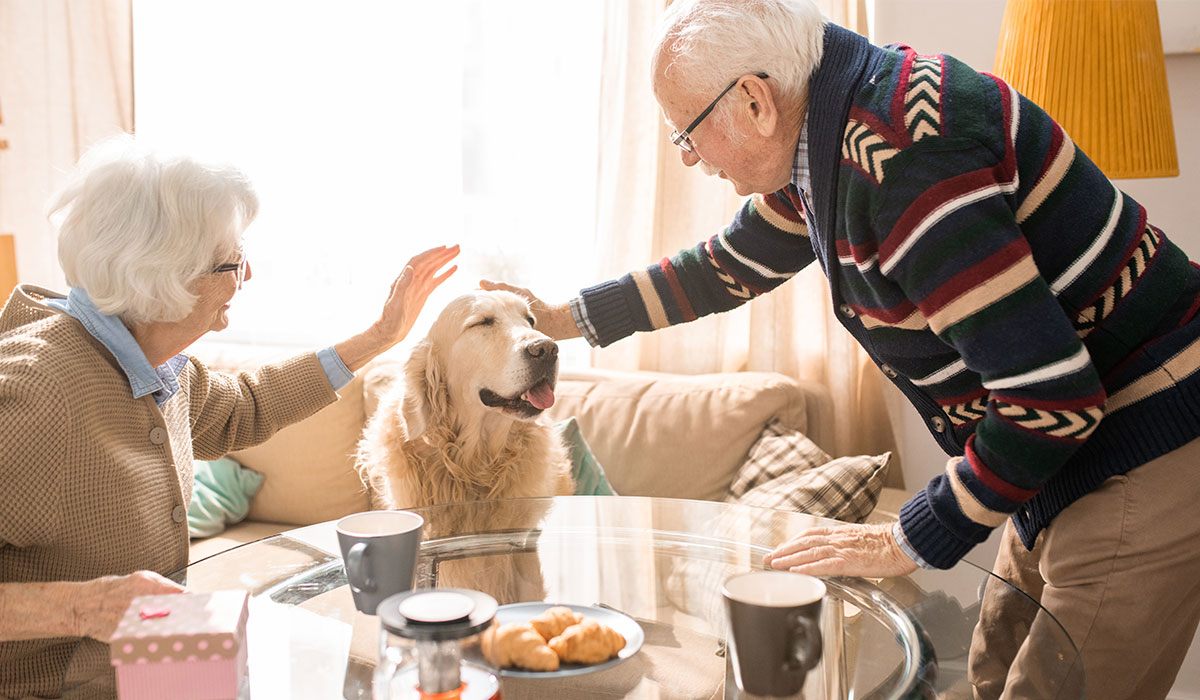
What Not to Do After Adopting a Dog: Key Mistakes to Avoid
Share
Congratulations on making the wonderful decision to adopt a dog! Bringing a furry companion into your home is a joyous and fulfilling experience. However, its essential to be mindful of what not to do after adopting a dog to ensure a seamless adjustment for both you and your new canine buddy. As a responsible pet owner, knowing the dos and don'ts following adoption can greatly influence your dog's health and happiness.
This article will highlight common pitfalls that new pet owners encounter and offer advice on how to create a nurturing and joyful environment for your new dog. Whether you are a first-time dog owner or adding another furry friend to your family, these suggestions will assist you in navigating those initial days of dog ownership.

Neglecting the Importance of Routine
Dogs thrive on routine, which is why one of the first steps after bringing your new pet home is to establish a consistent daily schedule. Failing to do this can create confusion and anxiety for your dog. A well-organized routine allows your dog to learn what to expect, facilitating a calmer demeanor and positive behavior.
Make sure to set regular times for feeding, walking, playtime, and rest. This approach not only supports your dog's physical health but also nurtures their mental well-being. Remember, a stable routine is the cornerstone of a happy dog!
Overlooking Proper Socialization
One of the most critical mistakes that new dog owners make is underestimating the value of socialization. Its important to introduce your dog to various people, environments, and other pets to help them grow into a well-adjusted adult. A lack of socialization can result in behavioral issues and fearfulness.
Begin with short, positive interactions and gradually increase exposure as your dog becomes more at ease. Joining local dog groups or training classes is an excellent way to enhance your dog's social skills. For more insights on this topic, check out adopting with kids.
Neglecting Veterinary Check-Ups
After adopting a dog, it's imperative to book a veterinary visit as soon as possible. Skipping this crucial step can lead to missed health concerns. A thorough health examination will ensure your dog is current on vaccinations and uncover any underlying issues.
Regular vet appointments are key for preventive healthcare. These visits provide an opportunity to discuss diet, exercise, and any other worries. Keep a record of your dog's health documentation and follow your vet's recommendations for a long, healthy life.
Ignoring Training and Boundaries
Training goes beyond teaching tricks; it's about setting boundaries and fostering communication between you and your dog. Neglecting to conduct basic training can lead to behavioral challenges and misunderstandings.
Start with fundamental commands like sit, stay, and come. Consistency and positive reinforcement are essential. If you're unsure about how to begin, enrolling in a training class or hiring a professional trainer can be beneficial. For more training tips, visit dog training tips.
Overindulging in Treats and Toys
While it may be tempting to shower your new furry friend with an abundance of treats and toys, overindulgence can lead to health problems such as obesity. Striking a balance is essential for maintaining your dogs health.
Select high-quality, nutritious treats and use them sparingly as motivators for good behavior. Rotating toys will keep your dog interested without overwhelming them. Always prioritize your dogs health over fleeting pleasures.
Failing to Create a Safe Space
Establishing a safe and comfortable haven for your new dog is vital for their adjustment. Ignoring this aspect can result in unnecessary stress for your pet. Designate an area where your dog can retreat, feel secure, and relax.
This space should include a cozy bed, a water bowl, and some toys. Ensure that the area is free of hazards and easily accessible. Providing a secure environment helps your dog settle in and contributes to their overall well-being.
Not Ensuring Adequate Exercise
Exercise is crucial for your dog's physical and mental health. Insufficient exercise can lead to obesity and behavioral issues. Many new pet owners misunderstand their dogs need for physical activity, which can have long-term implications.
Make sure your dog is getting daily walks and playtime suited to their breed and energy requirements. For further guidance on this subject, take a look at hypoallergenic dogs.

Frequently Asked Questions
When should I take my new dog to the vet?
Its advisable to schedule a veterinary visit within the first week of adoption to ensure your dogs health is thoroughly assessed.
How can I help my dog adjust to a new home?
Establishing a routine, providing a safe space, and gradually introducing new experiences and people can help with adjustment.
What are some common mistakes new dog owners make?
Common pitfalls include overlooking routine, socialization, training, and not providing proper exercise and veterinary care.
For further information, consider visiting Help Guide on adopting a dog for the first time. Adopting a dog is a fulfilling journey, and avoiding these frequent mistakes will ensure a happy and healthy life for your new furry family member.
This article contains affiliate links. We may earn a commission at no extra cost to you.
